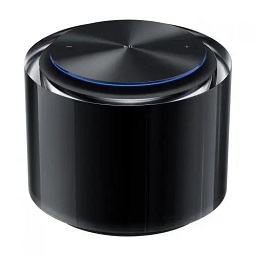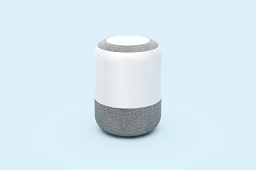First. from the triumphant progress to the demise, the smart speaker has entered a bottleneck period
After the birth of smart speakers in 2014. its global shipments increased to 147 million units in 2019. showing an exponential growth trend. Although the data research agency Strategy Analytics has not disclosed the data for 2021. from the data of 2020. its growth has gradually flattened, and at the beginning, we mentioned that domestic smart speaker sales have been 9 consecutive months compared with the same period of the previous year. It can be seen that the sales volume of the smart speaker market has peaked and is showing a downward trend.
1. Giant players monopolize market share
The TOP 6 companies in the smart speaker market account for over 85% of the global market share. According to data from market research firm Strategy Analytics, in the first quarter of 2022. the top six companies in the global smart speaker market share are Amazon, Google, Apple, Alibaba, Baidu, and Xiaomi.
From the perspective of the market structure, the smart speaker market has been monopolized by leading players for a long time, the market structure is basically mature, and the problem of product homogeneity is prominent.
2. The price is stable and there is no room for penetration
In addition to being monopolized by giant players, the price range of smart speakers tends to stabilize, which also makes it difficult for this market to change.
When consumers are accustomed to low-priced smart speakers, it is difficult for giant players to launch high-priced new products that consumers are willing to pay for.
3. Market demand tends to be saturated
After the accelerated popularization period, the smart speaker track is moving towards the next stage. At present, whether it is a speaker with a screen or a speaker without a screen, the user's demand for sound quality and the realization of some voice interaction functions have basically met the user's needs, and the smart speaker market has been basically saturated.
Recall that in 2014. Amazon launched a new hardware category Echo, which implanted intelligent voice interaction technology into traditional speakers, which led to the boom of smart speakers.
Why did the huge smart speakers in those days fail?

Second, why smart speakers are not popular
In fact, we have observed that 5-6 years have passed, and the development of smart speakers to the present, its transformativeness, innovation, and product experience have actually not met the expectations of users for this type of product.
Today, smart speakers have made certain progress from content entertainment services to smart homes, voice interaction, and other aspects, but there are no innovative products that exceed expectations.
1. What do users expect from smart speaker products?
Judging from the initial imagination of smart speakers, they will become the core entrance of smart homes. Through smart speakers, all electrical equipment in the home can be controlled.
Of course, if this goal is too ambitious, then in the user's expectation, the smart speaker can at least have a smooth dialogue with the room owner through voice interaction and voice recognition of the room owner's instructions at different locations. But with this small goal, smart speakers have not done well.
Up to now, smart speakers have not iterated a transformative experience in voice interaction experience.
Judging from voicebot.ai's ranking of smart speakers using functions, users who use smart speakers still do not leave the conventional functions such as listening to music, asking questions, checking the weather, setting alarm clocks, and listening to the radio.
Recommend Read:How Smart Speakers Work and How to Pick Yours?
2. What problems still exist in the smart speaker products on the market?
First of all, we need to admit that the current smart speakers are still immature in terms of voice interaction. Although speakers with screens are popularized, the integration of voice, buttons, and touch screens is not good, which weakens the characteristics and evolution of voice interaction.
Some industry practitioners pointed out that the current smart speakers almost do not support natural language input such as complex sentences, negative sentences, omitted sentences, multi-round dialogues, etc., and do not give full play to the real advantages of voice interaction.
This is probably the general feeling of consumers who have used smart speakers-whether it is long sentence recognition or semantic understanding, the answer to the question is a high probability event, and the experience is not good.
The voice interaction and recognition rate are not good, and users are not very interested in using it naturally.
The recognition rate of voice interaction and long sentences has not been improved, and it is also related to the lack of massive data training.
For large Internet manufacturers, smart speakers are independent products that cannot use the massive data of the mobile Internet. They need knowledge graph data that can respond to questions and answers for training.
If the recognition rate of smart speakers is low at the beginning, user stickiness is low, and user interaction frequency is low, there will naturally be a lack of massive data to iterate on its intelligence.
At the intelligent level of voice interaction experience, Amazon has not brought about fundamental changes in voice experience. For example, it cannot recognize the voice and needs of people or specific individuals, and it cannot have a payment experience comparable to that of smartphones.
In the eyes of many consumers, Alexa's practicality is insufficient.

Third. Where is the follow-up focus of smart speakers?
Smart speakers, the most intelligent home access port, the most important thing is highly intelligent. Therefore, more highly intelligent algorithms are the direction of subsequent development. Only smart speakers with intelligent algorithms that understand user needs and meet user needs can better meet market needs and increase user stickiness.











